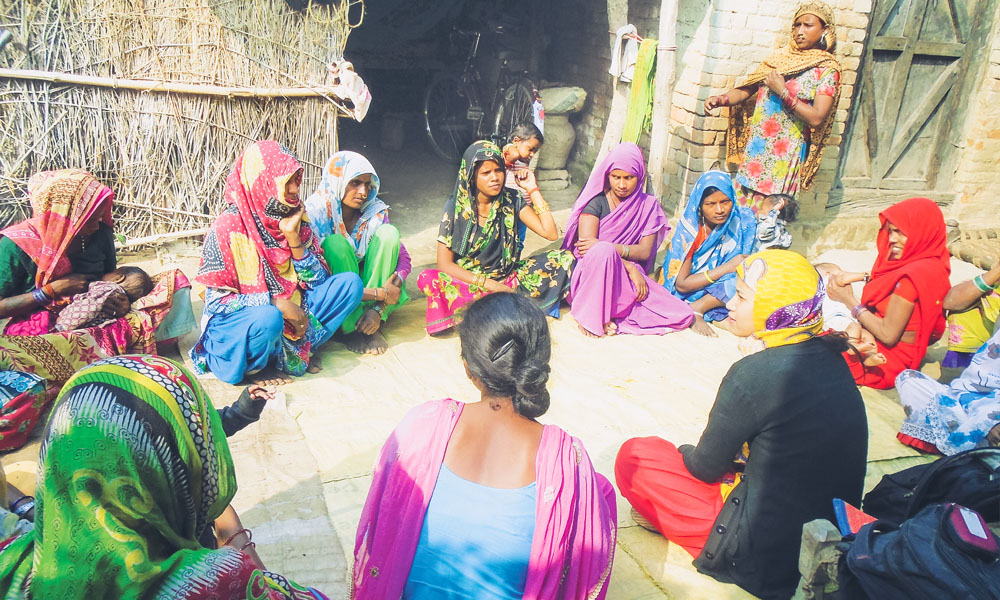Pregnancy and childbirth is usually a time of excited expectation but for many women in Nepal it’s overshadowed by the fear of complications during pregnancy and childbirth. A woman in Nepal is 42 times more likely to die in childbirth than a woman in Australia. In disadvantaged areas where INF is working, the lack of properly equipped birthing centres, an absence of sufficiently trained and supported staff, as well as traditional beliefs and practices, can result in low attendance for antenatal care, fewer institutional deliveries and inadequate post-natal care. This combination leads to poor maternal and child health outcomes.
INF observed the real need in this area and in 2014 began work in Maternal, Newborn and Child Health [MNCH] in Dang. INF has since initiated projects in Kapilvastu and Banke, both on the Terai.
Sunita’s Story
Sunita is 19-years-old and pregnant with her second child. She lost her first baby last year after she went into labour at home. She hadn’t attended any ante natal classes and after labouring for two days, became severely dehydrated and close to death. Family members finally took her to hospital. Sunita’s life was saved, but her baby boy was stillborn. Without much rest and time to recover she was soon pregnant again. Being the youngest daughter-in-law she is responsible for the entire house, she also works in the field and is the last to eat after a long day’s work. After hearing about her pregnancy INF volunteers visited Sunita, they found her tired and malnourished. Family members are often key decision makers in the health of young women and children in the family. Understanding this cultural context, the INF volunteer called a family meeting to discuss Sunita’s situation and the importance of her attending an antenatal clinic, eating healthily and delivering in a health facility. The family was skeptical of the need for these preventative measures and held little trust in ‘modern medicine’. Sunita’s mother-in-law initially opposed the idea but eventually agreed to accompany Sunita to regular local mothers group meetings, where maternal and child health topics are discussed.
Fortunately, thanks to the INF volunteer’s care, the clear health messages and discussion in the mother’s groups, as well as a visit to the local health facility; Sunita’s mother-in-law, the key health decision maker in her family, was convinced and allowed her daughter-in-law to regularly attend antenatal classes. Sunita and her family have also begun saving a little money each week so that they will be able to pay for transport to the health post when Sunita goes in labour. Her mother-in-law has been encouraging neighbours to attend the mother’s groups meetings too, having enjoyed the discussions around health and the benefits to her extended family. Sunita is now well equipped and heading for a better outcome this pregnancy.
Read the full article in the latest issue of Today in Nepal.



